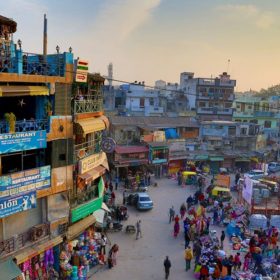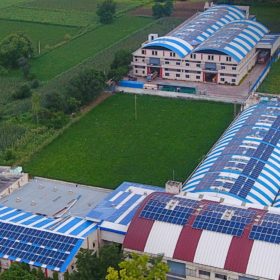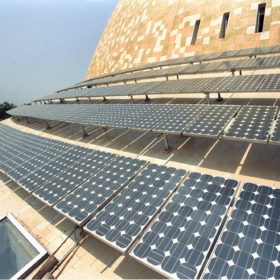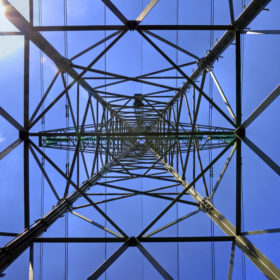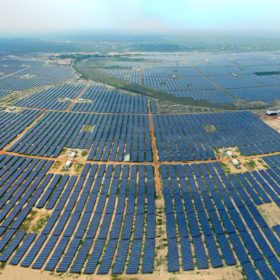Ather Energy to set up Li-ion, EV production unit in India
Ather Energy, an Indian electric scooter maker, has signed a memorandum of understanding with the government of Tamil Nadu to open a new production facility for lithium-ion batteries and electric vehicles.
Making Delhi A Solar City
The Indian capital has so far installed only 146 MW of rooftop solar capacity, against year 2019 target of 606 MW set under the Delhi Solar Policy. The slow growth is primarily due to certain myths among consumers which need to be debunked with better installer-consumer connect—says Delhi Solar Campaigner Sandeep Dahiya who currently leads the 100% UP, SeeNow, Energy & Power Sector reform work in India as a Campaigner at Purpose Climate Lab.
Government in the process of finalizing new energy policy: NITI Aayog Additional Secretary
Apart from thrust on energy efficiency and clean energy, the new policy will focus on Make in India for cells used in electric vehicle batteries and measures for demand creation and incentivizing investments.
Clean energy investment in developing nations slumps as financing in China slows: BNEF
Clean energy investment across 104 emerging markets fell sharply by $36 billion in year 2018 from the previous year, even as their coal burn surged approximately 500 terawatt hours to a record high of 6.9 thousand terawatt-hours. Though the decline in clean energy investments was driven largely by China, inflows to India and Brazil also slipped by $2.4 billion and $2.7 billion, respectively. India, however, emerged as the market with greatest renewables potential.
Net metering policy change could mean end of rooftop solar in Maharashtra
The recently proposed guidelines allow electricity cost reduction of only Rs 3.64/unit for commercial and industrial consumers, which is not even sufficient to recover the capital costs of setting up the solar infrastructure.
‘The right vision is needed to unleash the potential of floating PV in India’
The technology brings environmental, economic and social benefits, says the senior VP of Ciel et Terre’s Indian business. However, the nation’s obsession with price dictating business decisions, he adds, ignores the truism that ‘in the long run, cheap products lead to more cost’.
Kerala extends off-grid solar incentive for two years
The order enabling payment of a rupee for every kilowatt-hour generated by off-grid PV systems has been extended until October 2021 because of anticipated delays in the state electricity board hitting its renewable purchase obligation.
Cheap Indian imports claim prompts Bangladesh to introduce solar standards
Dhaka has heeded complaints about Indian manufacturers allegedly dumping sub-standard PV products over the border and issued a requirement for modules, inverters, charge controllers and batteries to attain IEC electrical standards.
Transmission charges waiver for renewables extended for second time
Developers will be spared interstate transmission system charges if their projects are secured through public capacity auctions held to enable electricity distribution companies to achieve their renewable purchase obligations, and provided the facilities are commissioned before 2023.
Tamil Nadu: Solar developers get relief as APTEL quashes power regulator’s unviable tariff order
The Appellate Tribunal for Electricity (APTEL) observed that Tamil Nadu Electricity Regulatory Commission (TNERC), in its Solar Tariff Order dated March 28, 2016, determined the tariff/capital cost without cogent or adequate reasoning while also being divergent from its own regulations.
